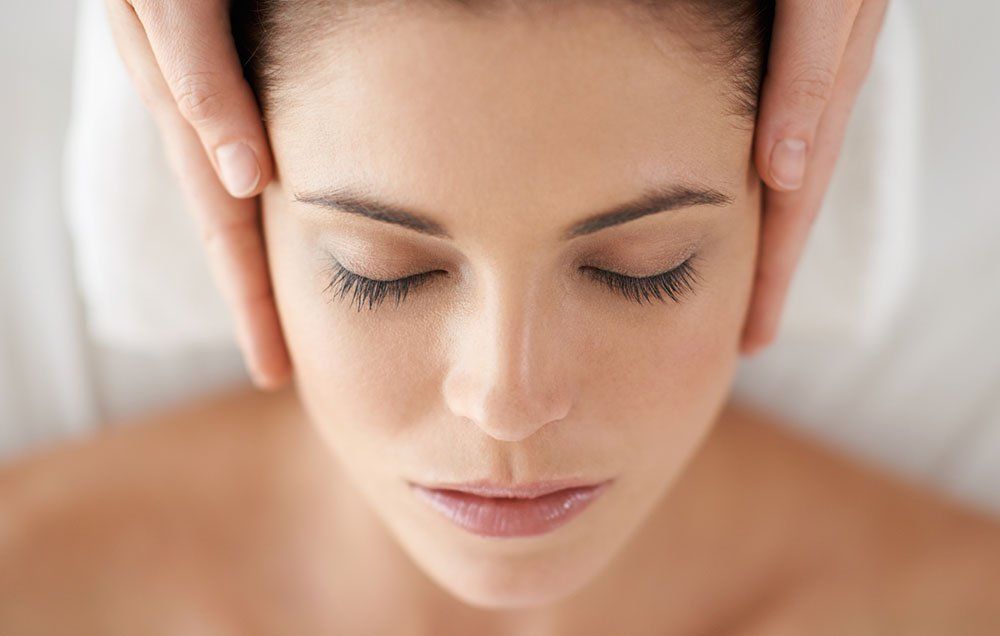Face tension is caused by stress, thus reducing stress will reduce it. Tension in your face or other parts of your body, such as your neck and shoulders, is a common reaction to mental or physical stress.
You have a “fight or flight system” as a human being. When you’re under stress, your body responds by releasing chemicals that stimulate your sympathetic nervous system, and this encourages your muscles to contract, preparing you to fight or flee.
When you’re under a lot of stress for a long time, your muscles can stay tight or partially contracted. This tension may eventually cause discomfort.
Symptoms of Facial Tension
Facial tension induces many symptoms such as:
- Headaches
- Lip damage
- Tingling
- Redding
Table of Contents
How to Relax Facial Tension?
Here is a quick review of how you could relax your face out of any facial tensions.
Adopting Relaxation Techniques
There is a variety of ways that can help you reduce stress and anxiety, including the following:
- Massage
- Meditation
- Hot showers
- Yoga
- Deep Breathing
Facial Exercises
More than 50 muscles support your facial structure. These muscles may assist in alleviating some of the facial strain caused by stress.
To ease facial tension, here are a few exercises to try:
- Slack Jaw: Relax your jaw and allow your mouth to spread wide. You can do this by bringing your tongue to the top of your mouth.
- Happy Face: Hold your widest smile for a count of five before relaxing your muscles. During each exercise, perform ten repetitions.
- Eye Squeeze: For a total of 20 seconds, keep your eyes closed tightly. Let go of all the small muscles around your eyes and look expressionless for 15 seconds; then, you’re done. Perform three sets of 3 reps.
- Brow Furrow: Make a wrinkle in your brows by arching them as high as you can. After 15 seconds, let go of this position. Perform three sets of 3 reps.
- Nose Scrunch: Hold your nostrils flared for 15 seconds and then release. Wrinkle your nose. Perform three sets of 3 reps.
Biofeedback Training
Monitoring your heart rate, muscle tension, and blood pressure with biofeedback equipment can help you learn how to control specific bodily responses better. It is possible to learn to relax your muscles, calm your heart rate, and regulate your breathing independently.
Medication
In addition to stress management measures, your doctor may prescribe anti-anxiety medication. Together, the two treatments could be more beneficial than each one alone.
Cognitive Behaviour Therapy (CBT)
When it comes to learning how to deal with the stress that’s keeping you up at night, Cognitive Behaviour Therapy, a sort of goal-oriented talk therapy, takes a practical approach.
Need of Relaxing Facial Tension
While talking about different remedies for relaxing our facial tension, you might be thinking, why do we need it? Several complications could be seen as a result of facial stress. Some of these complications may include:
Facial Tension and Anxiety
Facial tightness can be caused by stress and anxiety. Anxiety can worsen facial tension symptoms.
If you suffer from worry, it may be more difficult for the tightness in your face to dissolve on its own. Anxious people can make their symptoms worse by obsessing about the tightness in their bodies.
Facial Tension Headaches

The most frequent type of headache which could occur is tension headache caused by stress. The following symptoms characterize tension headaches:
- A sense of tension in the forehead, sides, or back of the head
- A dull or aching headache
Facial tensions may be of two types:
- Episodic Tension Headaches: The duration of episodic tension headaches might range from 30 minutes to a week. For a minimum of three months, frequent episodic tension headaches occur less than 15 days a month and can become chronic.
- Chronic Tension Headaches: Chronic tension headaches can last for hours and may not go away for a few weeks at a time. Chronic tension headaches require at least three months of receiving 15 or more tension headaches per month.
Conclusion
For healthy and glowing skin, it is vital to relax facial tension. If you wonder how to relax the face, we have some good news for you! MARHAMK has the best Dermatologists who can help reduce stress on your face and provide other services related to your overall skin.
Frequently Asked Questions (FAQs)
1- What Should I Do If My Facial Tension Headaches Become Severe Day By Day?
Make an appointment with your doctor if your tension headaches are becoming a problem in your life or if you find yourself using the medicine for them more than twice a week.
2- How Long Does Facial Tension Last?
Pain might last anywhere from 30 minutes to a week, depending on the severity of the injury. Noise, stress, weariness, or glare may cause or exacerbate it. You might be having trouble sleeping.
3- What Causes Tightness In The Front Of The Neck?
Inflammation, allergies, or infection can cause tightness in the front of the neck. An unsettled stomach could also lead to this reaction.
4- Why Does Facial Paralysis Happen?
When the muscles of one or both sides of the face are paralyzed, it is called facial paralysis. Congenital (existing at birth) disorders, trauma, or diseases, such as stroke or brain tumor, can cause facial paralysis.





